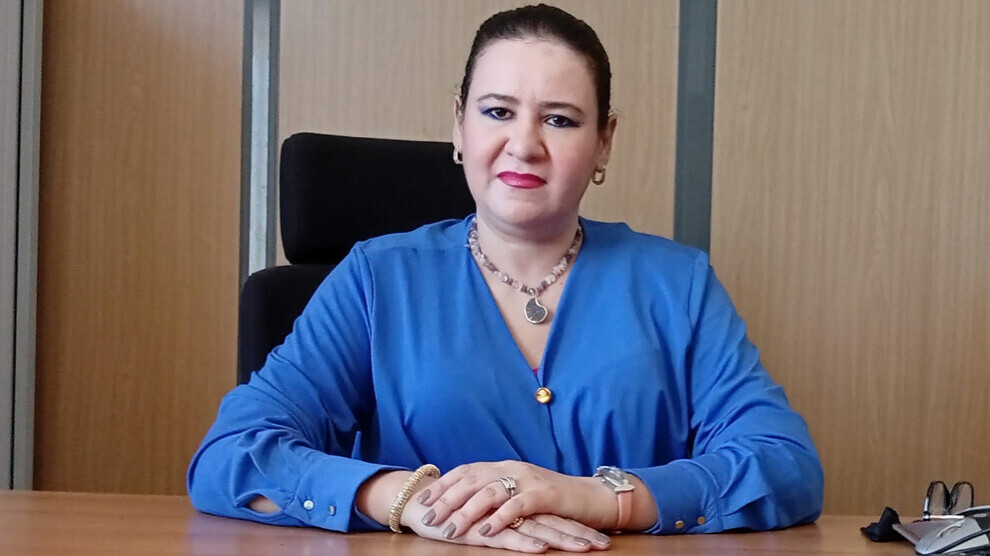Moroccan Political Activist Calls for Gender Equality and Urgent Implementation of the Parity Law
Imane Ghanmi stressed that cultural and social stereotypes still confine women’s ambitions, limiting their potential. She noted these challenges go beyond legal texts, requiring equality and parity to be rooted in collective social awareness.

Rajaa Khairat
Morocco – Amid the political and social transformations Morocco is undergoing, the issue of gender equality and parity emerges as one of the most pressing challenges for democratic development and sustainable progress. Activist Imane Ghanmi underlined that equality is not merely a sectional demand, but a national necessity to ensure social justice and meaningful participation of women in decision-making.
Despite Morocco’s significant constitutional and legislative gains, they have yet to overcome deep-rooted stereotypes and structural barriers limiting women’s participation in public life. Women’s rights advocates continue to demand the adoption of a framework law on parity and the activation of the constitutional body tasked with combating discrimination, seeing them as essential pillars to secure women’s rightful place as full partners in development.
As president of the Moroccan Organization for Working and Entrepreneurial Women, Ghanmi highlighted that the trajectory of Moroccan women toward liberation and empowerment reflects, at its core, the story of an entire nation. She noted that women’s progress was never separate from the country’s broader political and social transformations since independence.
A Long Journey of Liberation
Ghanmi recalled that Moroccan women played a critical role in the national liberation struggle, standing at the frontlines of resistance against colonialism. Women engaged not only in armed resistance but also in logistical support and mobilizing public opinion, breaking through traditional roles and laying the groundwork for later demands for equality.
Following independence, however, the socio-political system remained largely conservative, relegating women to secondary roles. Yet, pioneering women pushed forward with demands for reforms—particularly around the Personal Status Code, which for years reflected entrenched patriarchal norms. Persistent advocacy eventually led to incremental reforms in 1993, followed by the landmark Family Code of 2004, which raised the marriage age, restricted polygamy, expanded women’s rights in divorce and custody, and marked what Ghanmi described as a “quiet revolution” toward greater justice.
The 2011 Constitution further solidified this progress, explicitly enshrining the principles of equality and parity, banning discrimination, and mandating the creation of a constitutional body to ensure gender equality. These reforms, she noted, were the result of decades of women’s mobilization and alignment with global human rights dynamics, opening the door to stronger female representation in parliament, local councils, and decision-making institutions.
A Framework Law on Parity: A National Imperative
According to Ghanmi, women’s empowerment is not a fleeting demand but the outcome of a steady royal vision that placed women at the forefront of national priorities, culminating in significant reforms. However, she stressed the need to move beyond symbolic recognition to practical implementation.
She called for the adoption of a binding framework law on parity—a law that would not only guarantee equality before the law but also obligate government bodies, public institutions, and the private sector to implement gender-sensitive policies in political representation, employment, and wages. This law, she argued, must embed gender considerations into ministerial budgets, set measurable indicators, and ensure legislative oversight.
Equally crucial, she said, is the effective activation of the Constitutional Parity and Anti-Discrimination Authority, ensuring it operates with full independence, adequate resources, and real investigative powers. Such a body must be capable of receiving individual and collective complaints, producing annual reports, and holding institutions accountable.
“Today,” Ghanmi stressed, “the demand for a framework law on parity is no longer a niche feminist claim—it is a national necessity to complete the building of a state of law and institutions, and to secure Morocco’s engagement in sustainable development.”
Ongoing Challenges for Moroccan Women
While acknowledging Morocco’s legal progress, Ghanmi pointed out that women still face major political, economic, and cultural challenges: low representation in leadership positions, persistent wage gaps, limited access to finance for women-led enterprises, precarious labor conditions—especially in the informal sector—and enduring cultural stereotypes that restrict women’s ambitions.
These issues, she argued, cannot be solved by laws alone. They require strong political will, inclusive public policies, and deep cultural, educational, and media reforms to embed the values of equality and parity into the national consciousness.
Drawing on both national experience and international lessons, she stressed that gender equality is not a luxury nor a secondary demand, but a cornerstone for sustainable development, social justice, and democratic governance.
‘A Stage of Action, Not Just Words’
In closing, Ghanmi stated:
“The coming phase must be one of decisive legislation and implementation. A phase that transforms constitutional promises into lived reality for Moroccan women. A phase where equality and parity become cornerstones of public policy, not mere slogans. Today, Moroccan women are no longer waiting for the door to open—they are breaking through with their competence, creativity, initiative, and determination to be full partners in building the nation.”
